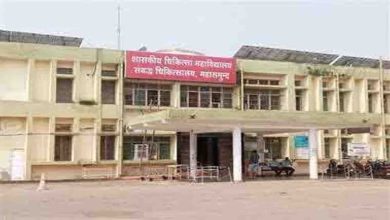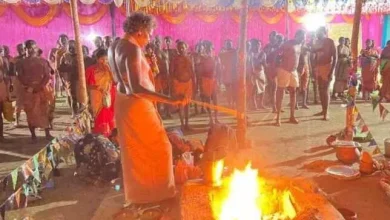CHENNAI: Carving out a slice of Chennai from Madras

Chennai: What used to be a commonplace in the old days has transformed into a unique language of pottery over the years. After the reorganisation of states in 1956, Gudur, where Madras state’s first ceramic factory was set up, became part of the newly-formed Andhra Pradesh state. The first ceramic factory in Tamil Nadu was set up by the state government in 1955 at Vridhachalam, now part of Cuddalore district. “The art of pottery making was certainly new to the state. It started in a small hut where initial work in art pottery began. The first primary set-up for art pottery was established in 1957 at the School of Arts and Crafts,” explains Shivaraj K., lecturer at the Government College of Fine Arts. Later, Vridhachalam got its first ceramic institute in 1964. This was the same year when the art pottery unit was also set up in Perambur. It’s been 60 years, and the artistry of ceramic artists in Chennai has only graced the world with beautiful artistic creations. Three such ceramic artists from the city will celebrate the 385th Madras Day this year, a city that has recognised and honoured them as successful ceramic artists, by showcasing their creations at ‘Echoes of Nature’.
“This city has a deep connection with art, and showcasing contemporary ceramic artists connects with the vibrant, evolving artistic landscape here. The exhibition seeks to bridge the traditional and the modern, highlighting how contemporary ceramic artists from Chennai draw inspiration from nature, while incorporating innovative techniques and global influences in their work,” says Sandhya Gopinath, an avid art curator and artist who has curated the Echoes of Nature ceramic exhibition. The exhibition will take us on a journey of discovery, where blooming flowers, winding branches and flowing rivers come alive through clay. Just a few days are left for the artistic tribute that connects us to the natural world, where Gukanraj K. sits in his ceramic studio in Kottivakkam, his fingers moving skillfully, sculpting the Golden Mother and Child.
“My art is a tribute to the profound cycle of life. Though I studied in a small town in Villupuram, my connection with Madras never ended. I was born in 1979 in Egmore, where my mother hails from. I came back to the city in 1998 for my bachelor’s degree,” Gukanraj begins to reminisce. The city of emotions chimes welcoming him. “My entry into the art movement began from Madras. For me, this city is the golden mother who shone her light on me in my tough times. It was here that I started working with clay, which makes me feel like a farmer tilling the soil. Madras has given me my identity, which I represent proudly,” he says. Gukanraj has created a sculpture of the child he sees in himself, wrapped in the hidden arms of the Golden Mother. Loganathan E has a way of carefully crafting each of his ceramic pieces, evoking a sense of wonder and connection to the elements found in the environment. Madras has always been his safe haven.
“Born and raised in this vibrant city, I have seen countless changes over the years, yet the essence of its people remains constant. Madras is not just a place for Tamil-speaking locals, it is a melting pot of culture and languages from across India,” says Loganathan, who is quite excited to honour Madras Pride on August 22. His ceramic artworks pay tribute to the historic essence of the city by transforming the beauty of old buildings into contemporary pieces. He explains, “My style, ‘Old is Gold’, reflects a reverence for the past while celebrating its enduring significance through modern artistry. This blend of history and creativity in my work reflects the spirit of Madras, where the old and the new co-exist harmoniously.” While Ramkumar Kannadasan grew up in the rural areas of South India, he drew inspiration from his childhood surroundings, where he was constantly preoccupied with themes revolving around the relationship between humans and animals, including power, love and dependency.
“I remember visiting Chennai in 2006, and seeing how elephants are celebrated in a grand manner during temple festivals. They are decorated with beautiful gems, and are considered an Indian deity, held in high esteem in the minds of people,” explains Ramkumar. He tries to sculpt each piece in a way that incorporates mastery of stone, metal, wood, terracotta and ceramic, dedicated to creating thought-provoking forms that challenge the viewer to reflect on their relationship with the natural world. Echoes of Nature will also feature two sculptor artists Priya Sundaravalli and Rakhi Khane from Pondicherry, each of whom will present the essence of nature’s textures, colours, shapes and rhythms. “Featured artist also has a deep connection to Korea He has participated in residencies and exhibitions supported by the Inco Center, where the exhibition will be held.





